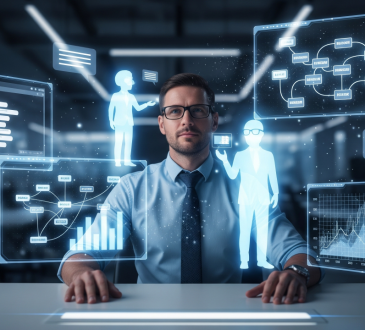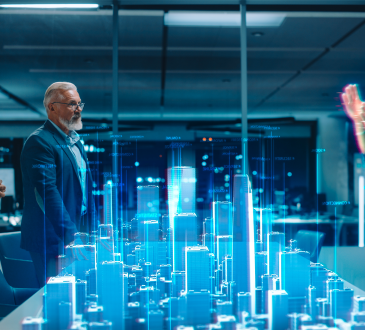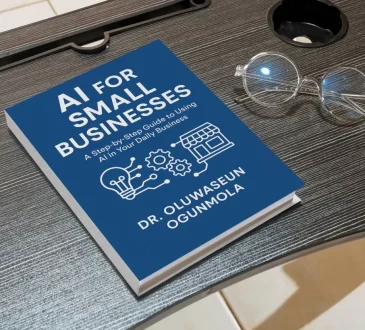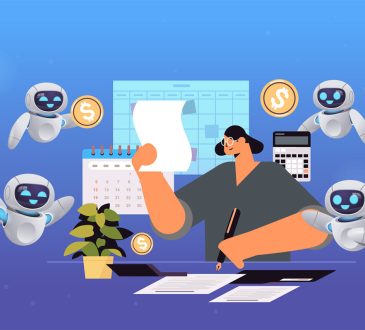Artificial Intelligence Trends Everyone Is Talking About Right Now

Artificial Intelligence is no longer a buzzword tossed around in tech circles—it has become a central force driving innovation, shaping global markets, and influencing the way people work, live, and connect. What once felt futuristic is now unfolding in real time, and the pace of advancement is faster than what even experts predicted. As the world enters a new era of AI maturity, several major trends are capturing the attention of researchers, businesses, policymakers, and everyday users alike. These are the AI developments everyone is talking about right now—and why they matter so much.
1. Multimodal AI Models Are Becoming the New Standard
Early AI systems could process only one type of input—text, image, or audio. Now, multimodal AI models are dominating the conversation. These systems can simultaneously understand text, images, video, audio, and even sensor data. This shift has fueled the development of far more intuitive AI tools capable of reasoning across different formats, producing more humanlike outputs, and offering richer assistance.
Whether it’s models that can watch a video and summarize it, read complex documents and provide insights, or generate images based on spoken instructions, multimodal AI is rapidly setting the benchmark for next-generation intelligence. Businesses are already integrating these capabilities into customer service, analytics, manufacturing, and creative workflows.
2. AI Assistants Are Becoming Fully Autonomous
Another widely discussed trend is the rise of AI agents—systems that can perform tasks independently without step-by-step human guidance. Instead of waiting for commands, today’s AI agents can analyze situations, make decisions, and take action.
For example, businesses are deploying agents that can:
- Book appointments
- Complete administrative tasks
- Conduct market research
- Automate customer support
- Manage logistics and scheduling
This shift signals a major leap from AI as a passive tool to AI as a proactive collaborator. Experts predict that autonomous agents will soon handle a wide range of repetitive tasks, freeing up people to focus on higher-level problem-solving and creative work.
3. AI Is Reshaping the Creative Industry More Than Ever
The creative world—once thought to be safe from automation—is witnessing unprecedented transformation. Generative AI tools now help produce articles, marketing campaigns, music compositions, video content, animations, and even full-length films.
Writers and designers are using AI to brainstorm concepts, accelerate production, and enhance storytelling. Filmmakers are experimenting with AI-assisted visual effects. Musicians are generating compositions and soundscapes in minutes. Even social media creators are turning to AI to design posts, scripts, and thumbnails.
While this raises important ethical and copyright debates, there’s no doubt that AI is revolutionizing how creative work is produced and consumed.
4. AI Regulation Is Entering a Defining Phase
Governments around the world are now actively developing AI laws as concerns about privacy, misinformation, job displacement, and ethical risks continue to grow. Regulatory initiatives are emerging across Europe, Asia, and North America, and they focus on issues such as:
- Training transparency
- Data protection
- Fairness and bias reduction
- Safety testing requirements
- Accountability for misuse
These policies will play a crucial role in shaping the future of AI adoption. Companies are now preparing for an era in which compliance, auditing, and responsible deployment become just as important as innovation.
5. AI-Powered Workflows Are Transforming the Job Market
One of the biggest topics people are discussing right now is how AI is reshaping jobs. Many industries—tech, finance, healthcare, education, retail, and entertainment—are integrating AI tools into everyday workflows. This doesn’t simply mean replacing roles; instead, jobs are evolving.
Employees are learning how to work with AI, not against it. The demand for roles such as AI supervisors, prompt engineers, machine learning specialists, and automation managers is rising quickly. Meanwhile, professions that rely heavily on repetitive tasks are undergoing redesign to include more decision-making and creative responsibilities.
Experts believe the next few years will bring a hybrid work environment where humans and AI handle different parts of the same task to achieve better speed and quality.
6. AI in Healthcare Is Advancing at Record Speed
Healthcare remains one of the most promising and talked-about areas for AI innovation. From diagnosing diseases to predicting medical risks, AI is helping doctors deliver faster and more accurate care.
Major developments include:
- AI diagnostic tools that detect early signs of cancer
- Predictive systems for treatment planning
- Drug discovery platforms that speed up research
- AI-powered robotic surgery assistants
- Virtual health coaches for personalized care
These technologies are expected to make healthcare more accessible, efficient, and preventive rather than reactive.
7. AI-Driven Automation Is Reshaping Manufacturing and Industry
Factories and industrial facilities across the world are adopting AI-enhanced robotics, predictive maintenance tools, and automated quality-control systems. These advancements have drastically reduced downtime, increased precision, and improved worker safety.
Smart factories now use AI to monitor equipment health, forecast production demands, and optimize energy usage. This trend is accelerating global competition and pushing companies to adopt AI to stay ahead.
8. Personalized AI Is Entering Everyday Life
AI is no longer just a tool for businesses—it has become a daily companion for millions of people. Personal AI assistants that learn from user behavior are emerging, offering individualized insights, reminders, recommendations, and productivity support.
Whether someone wants help managing finances, improving fitness, learning new skills, or organizing their daily routine, personal AI tools are becoming more adaptable and context-aware. This trend signals a future where everyone might have a highly customized digital companion.
9. Ethical AI and Trust Are Becoming Central Discussions
With AI becoming more integrated into society, conversations about ethics, trust, and transparency are intensifying. People want to know how AI systems are trained, what data they use, and how their decisions are made.
Topics such as algorithmic bias, responsible development, and safe deployment dominate global panels and technology conferences. As AI becomes more influential, building public trust is becoming essential.
10. AI and the Future of Human-AI Collaboration
The biggest trend of all is the shift toward human-AI collaboration. Instead of replacing people, the latest generation of AI tools is designed to amplify human intelligence. Many experts argue that the most successful organizations will be those that learn to integrate human creativity with AI precision.
This collaborative model is reshaping industries and redefining what people can achieve with intelligent technology at their side.




